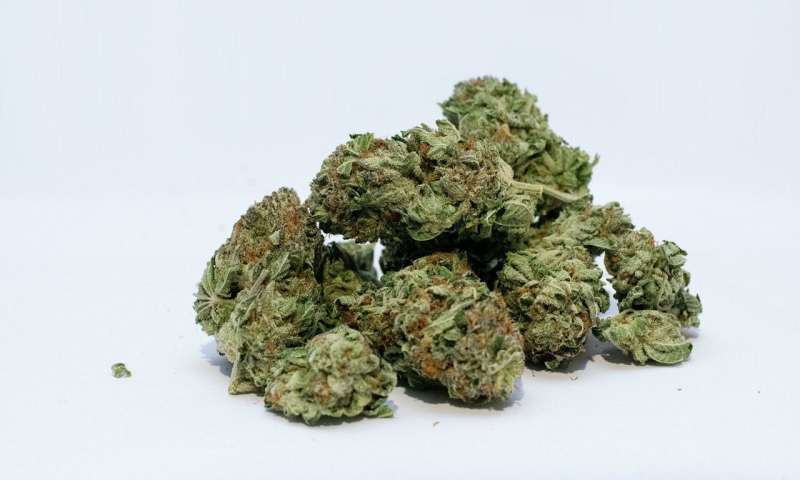Credit: CC0 Public Domain
Available evidence suggests that several drug classes, including cannabinoids and SSRIs, are ineffective for treating cannabis use disorder. Findings from a systematic review are published in Annals of Internal Medicine.
According to the National Survey on Drug Use and Health, from 2002 to 2014, the prevalence of daily cannabis use in the United States nearly doubled. The potency of readily available cannabis has also increased, while public perception of cannabis harms has decreased. With increased use among the general population and a high prevalence of cannabis use disorder among current cannabis users, an urgent need exists for more research to identify effective pharmacologic treatments.
Researchers from VA Portland Health Care System reviewed published research to ascertain the benefits and risks of pharmacotherapies for the treatment of cannabis use disorder. Across 26 trials, the evidence was largely insufficient to determine whether medication could help treat cannabis use disorder. The researchers found low- to moderate-strength evidence that buspirone, cannabinoids, and SSRIs were ineffective for decreasing cannabis use or improving abstinence. Evidence was insufficient to draw conclusions about the effectiveness of all other drug classes. The researchers noted that overall, the evidence base was limited because small number of studies investigating most drug classes, small sample sizes, nearly universal high attrition rates, and other methodological flaws in nearly half the trials included in the review. They conclude that more research in this area is urgently needed.
More information: Karli K. Kondo et al. Pharmacotherapy for the Treatment of Cannabis Use Disorder, Annals of Internal Medicine (2020). DOI: 10.7326/M19-1105
Journal information: Annals of Internal Medicine
Provided by American College of Physicians























